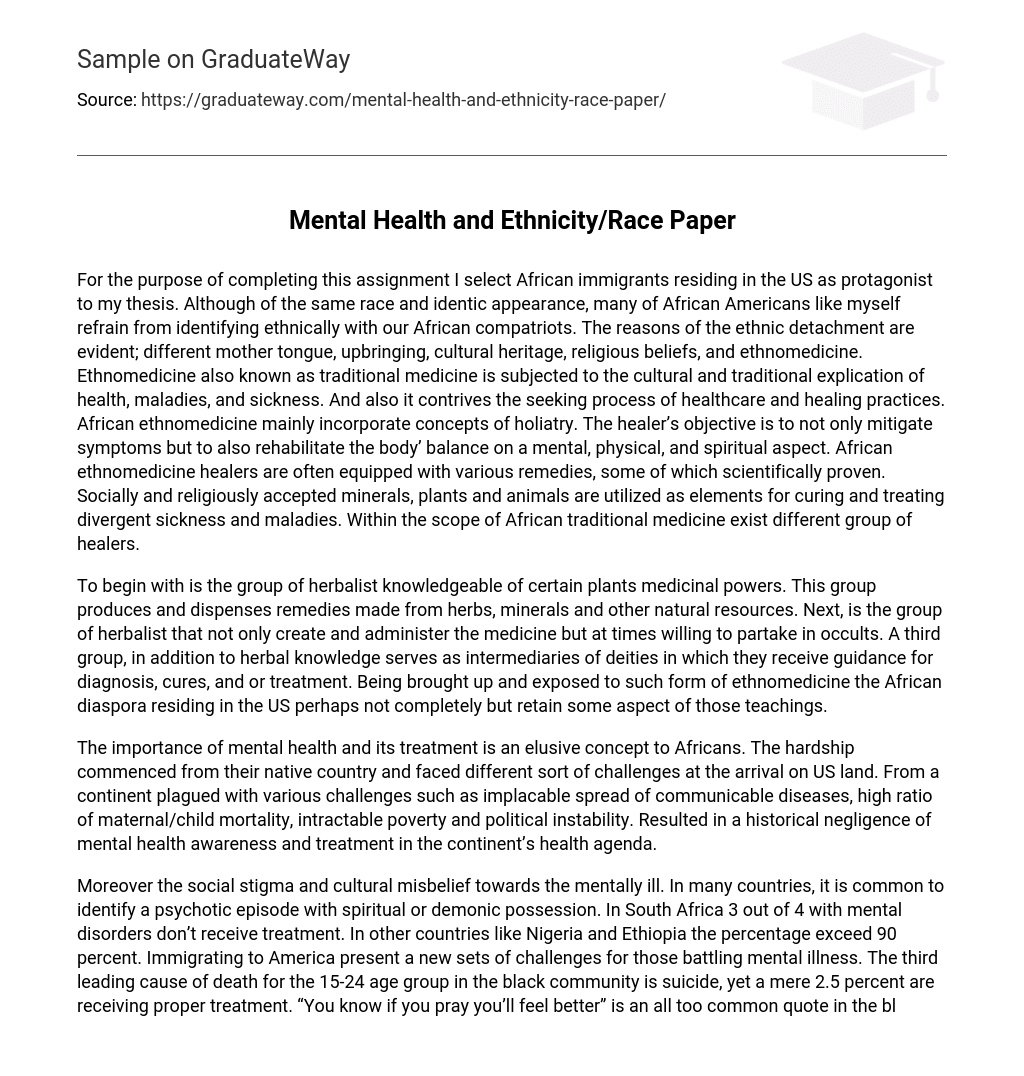For the purpose of completing this assignment I select African immigrants residing in the US as protagonist to my thesis. Although of the same race and identic appearance, many of African Americans like myself refrain from identifying ethnically with our African compatriots. The reasons of the ethnic detachment are evident; different mother tongue, upbringing, cultural heritage, religious beliefs, and ethnomedicine. Ethnomedicine also known as traditional medicine is subjected to the cultural and traditional explication of health, maladies, and sickness. And also it contrives the seeking process of healthcare and healing practices. African ethnomedicine mainly incorporate concepts of holiatry. The healer’s objective is to not only mitigate symptoms but to also rehabilitate the body’ balance on a mental, physical, and spiritual aspect. African ethnomedicine healers are often equipped with various remedies, some of which scientifically proven. Socially and religiously accepted minerals, plants and animals are utilized as elements for curing and treating divergent sickness and maladies. Within the scope of African traditional medicine exist different group of healers.
To begin with is the group of herbalist knowledgeable of certain plants medicinal powers. This group produces and dispenses remedies made from herbs, minerals and other natural resources. Next, is the group of herbalist that not only create and administer the medicine but at times willing to partake in occults. A third group, in addition to herbal knowledge serves as intermediaries of deities in which they receive guidance for diagnosis, cures, and or treatment. Being brought up and exposed to such form of ethnomedicine the African diaspora residing in the US perhaps not completely but retain some aspect of those teachings.
The importance of mental health and its treatment is an elusive concept to Africans. The hardship commenced from their native country and faced different sort of challenges at the arrival on US land. From a continent plagued with various challenges such as implacable spread of communicable diseases, high ratio of maternal/child mortality, intractable poverty and political instability. Resulted in a historical negligence of mental health awareness and treatment in the continent’s health agenda.
Moreover the social stigma and cultural misbelief towards the mentally ill. In many countries, it is common to identify a psychotic episode with spiritual or demonic possession. In South Africa 3 out of 4 with mental disorders don’t receive treatment. In other countries like Nigeria and Ethiopia the percentage exceed 90 percent. Immigrating to America present a new sets of challenges for those battling mental illness. The third leading cause of death for the 15-24 age group in the black community is suicide, yet a mere 2.5 percent are receiving proper treatment. “You know if you pray you’ll feel better” is an all too common quote in the black community whenever one verbally expressed their struggles with mental health. The misconstruing belief that African Americans aren’t affected or don’t have time for mental illnesses the likes of depression is a poisonous mentality afflicting the community. Furthermore, spiritual salvation isn’t the solution.





